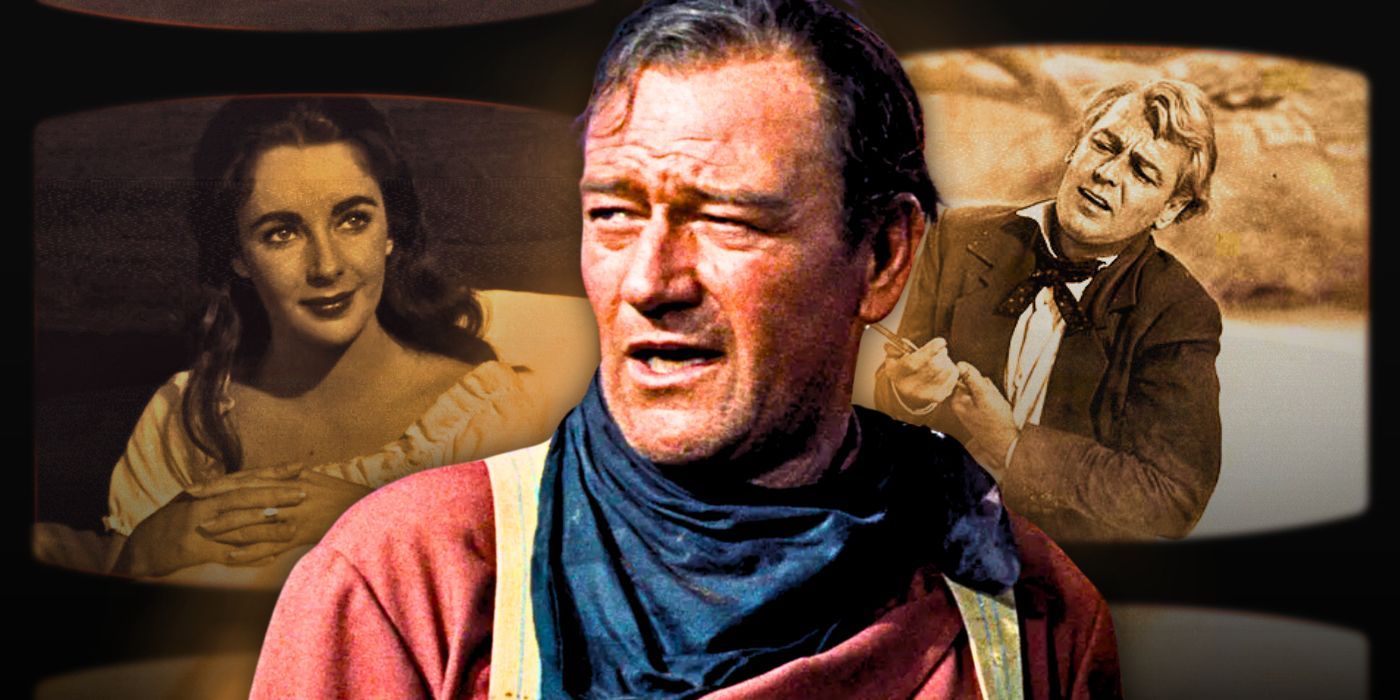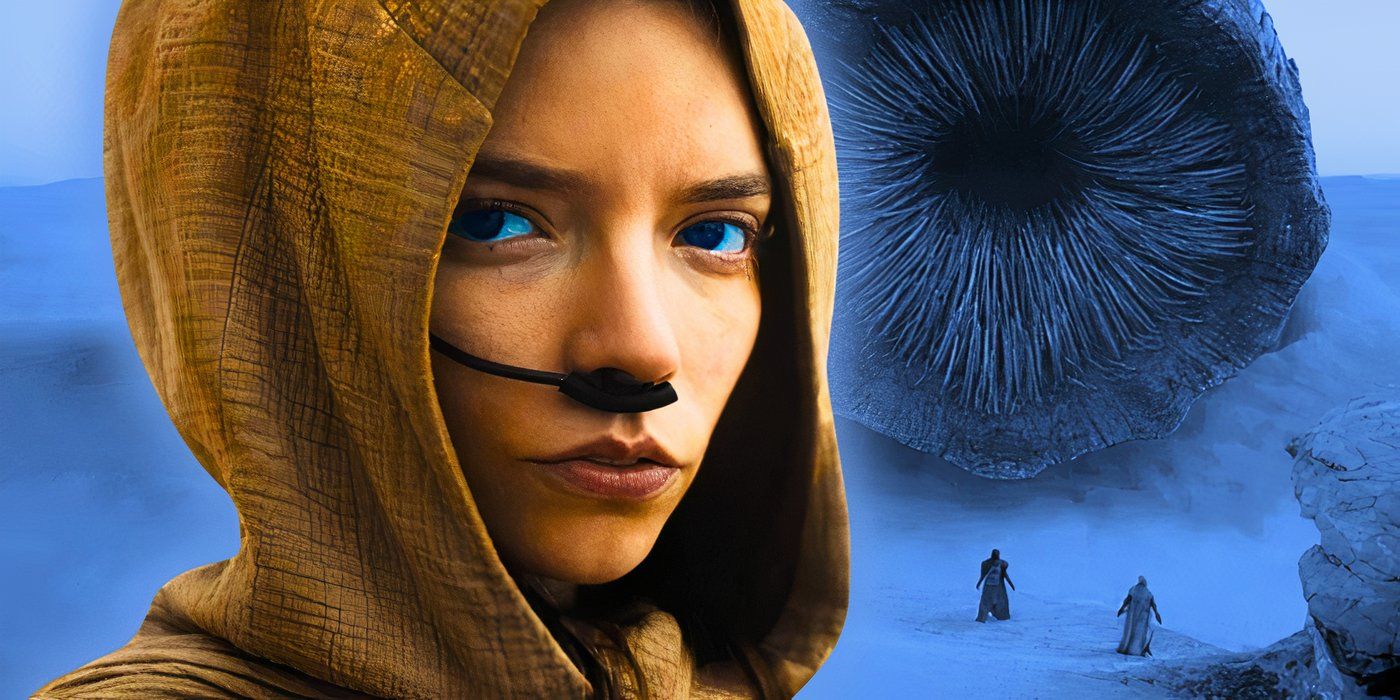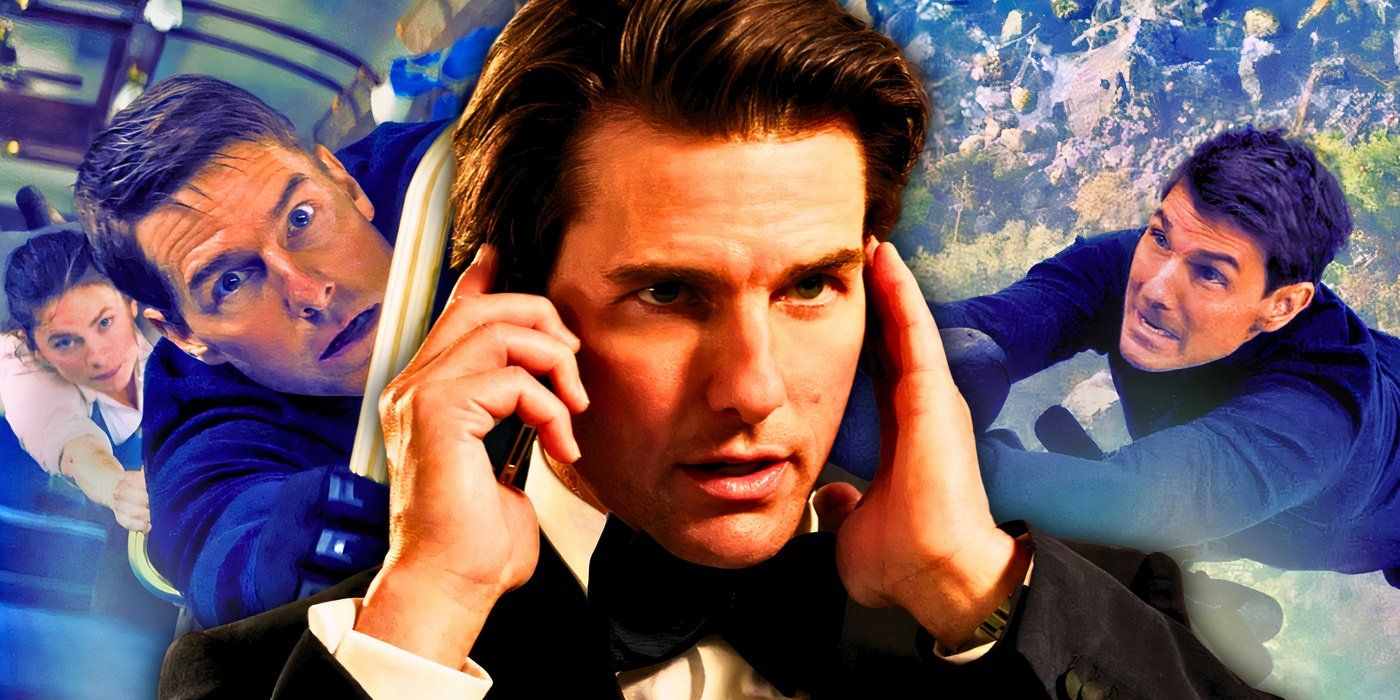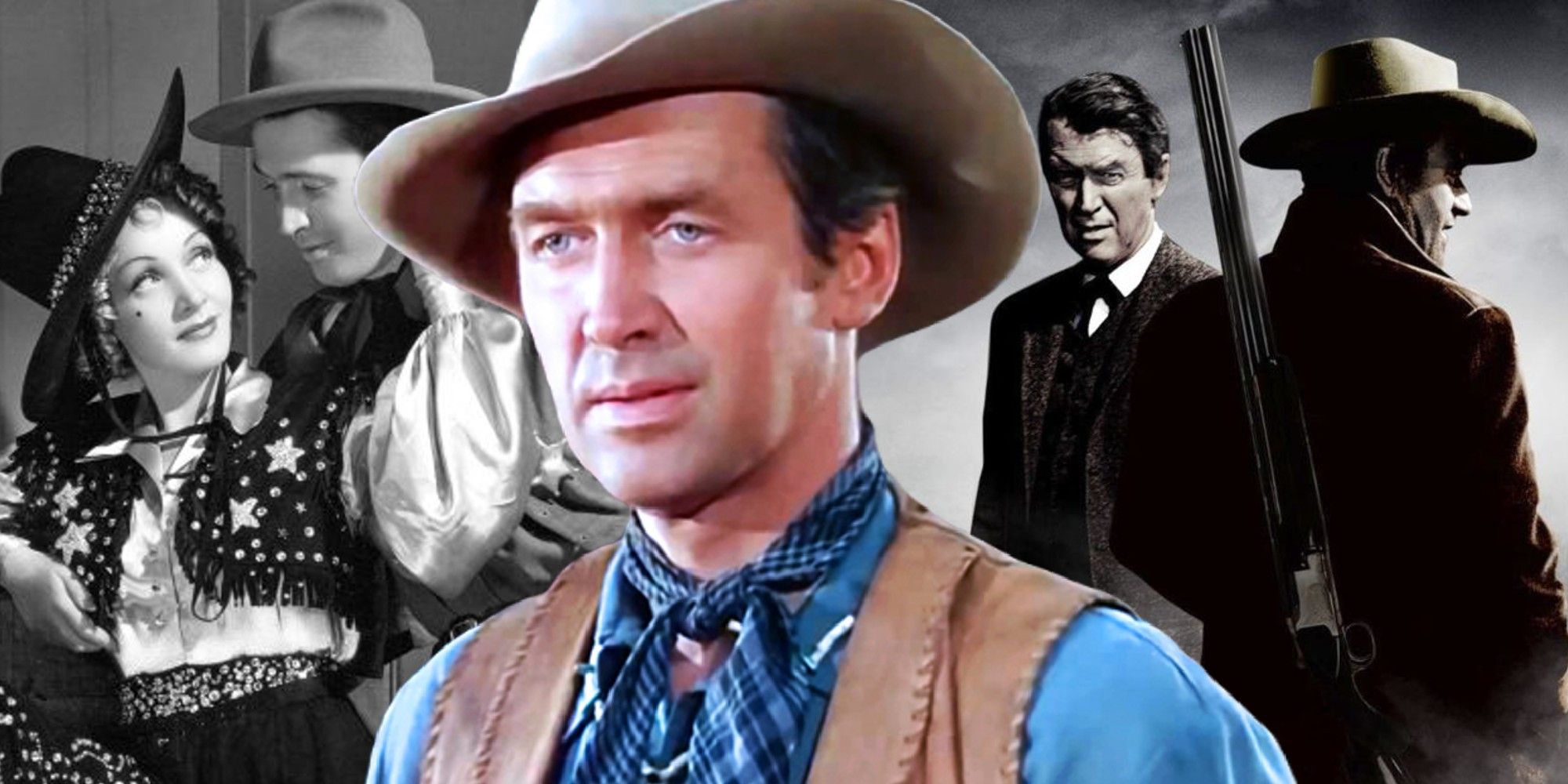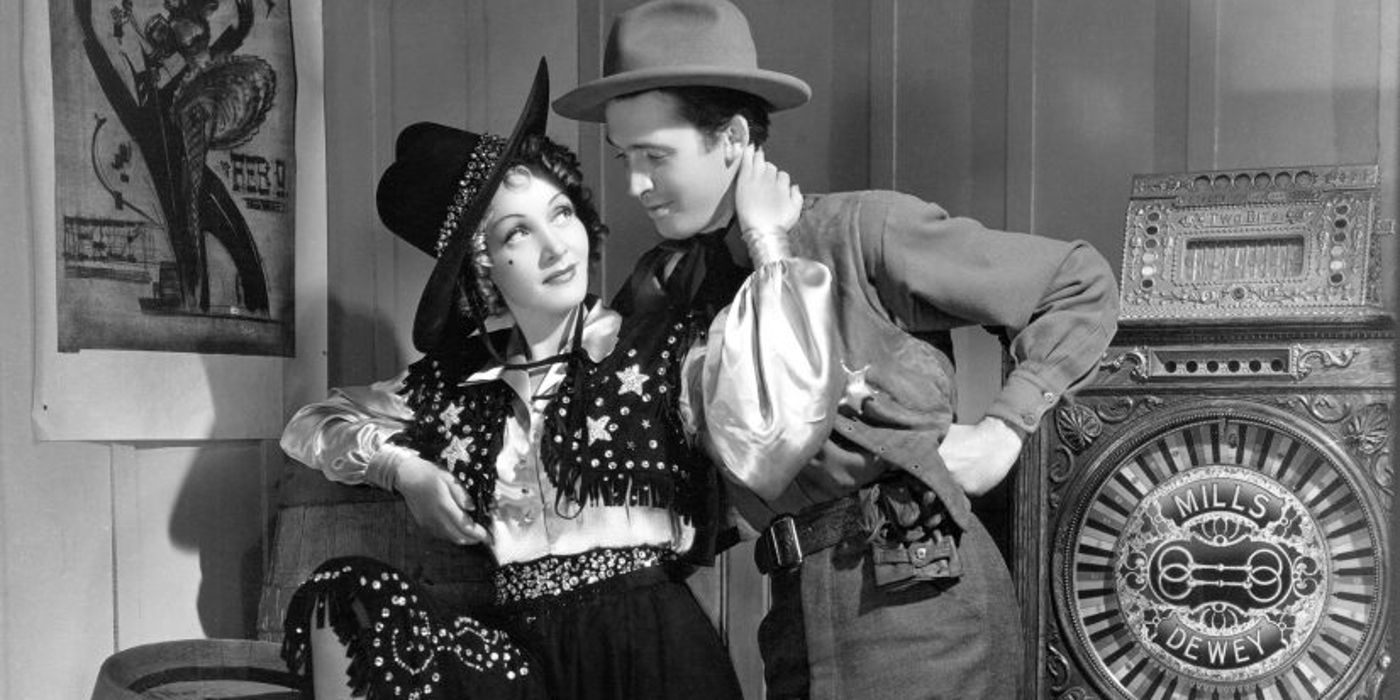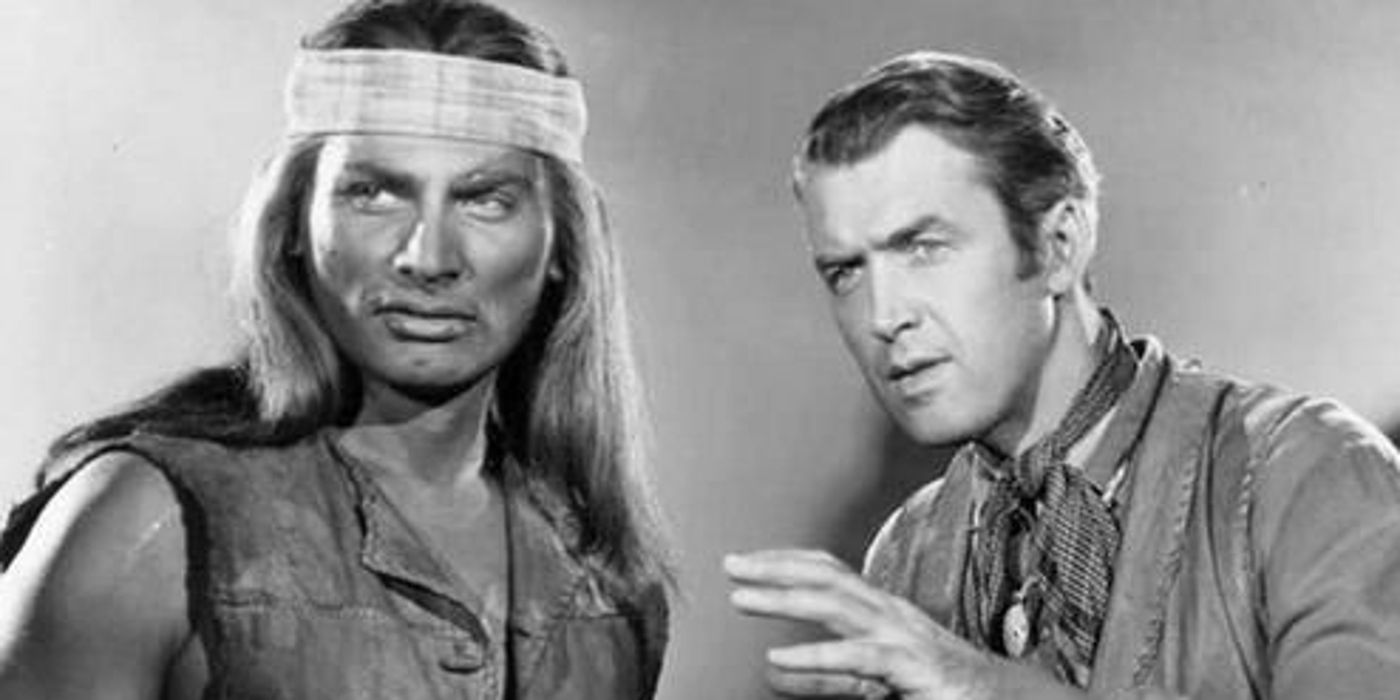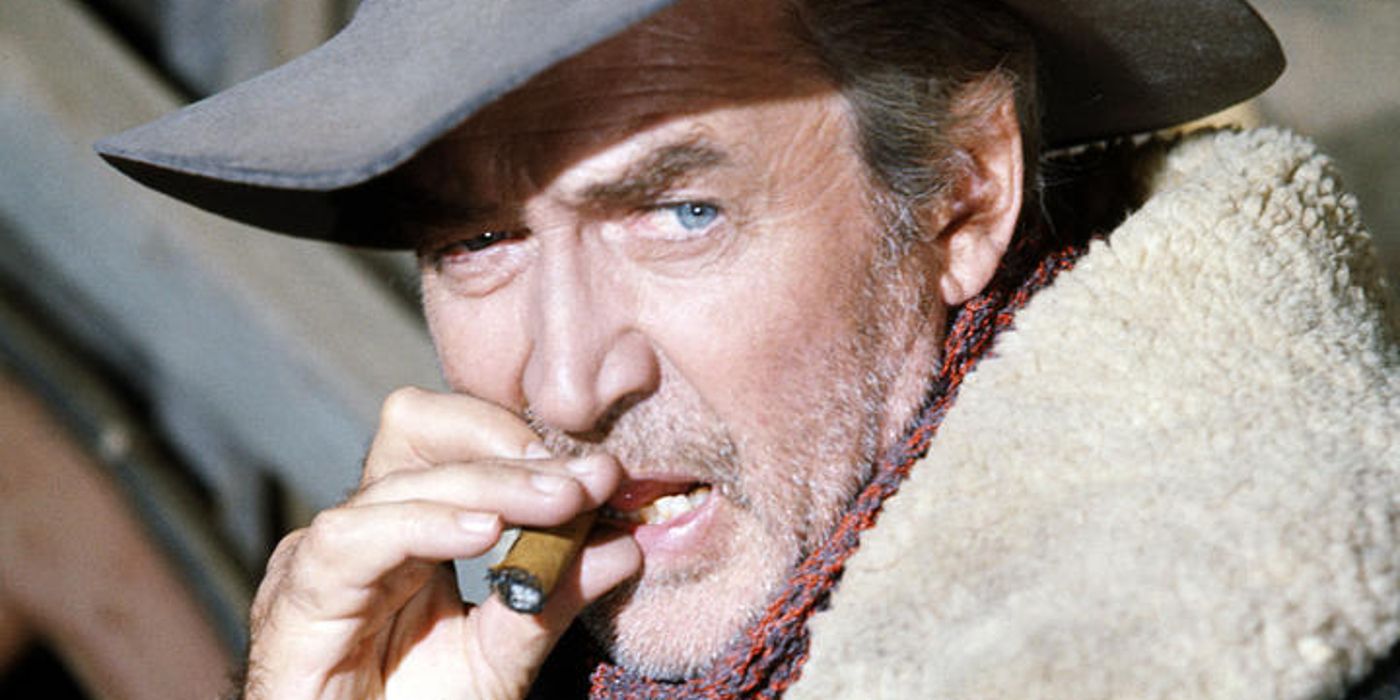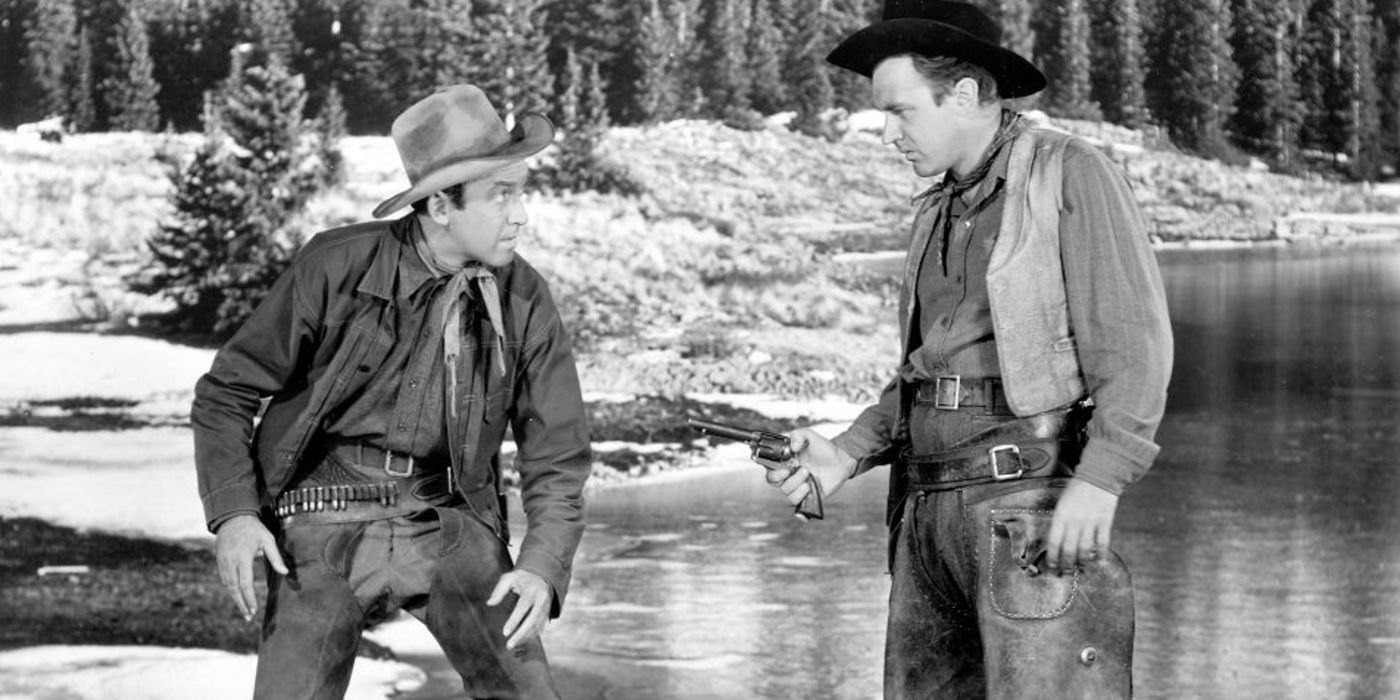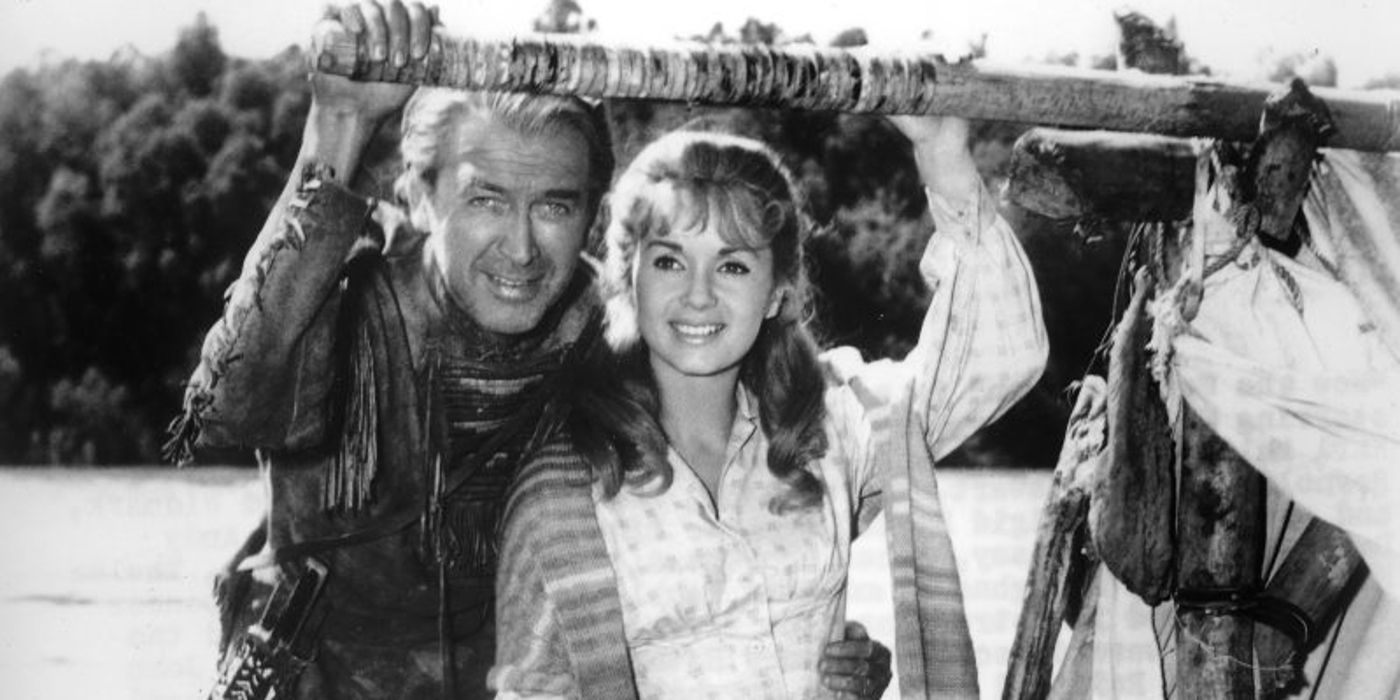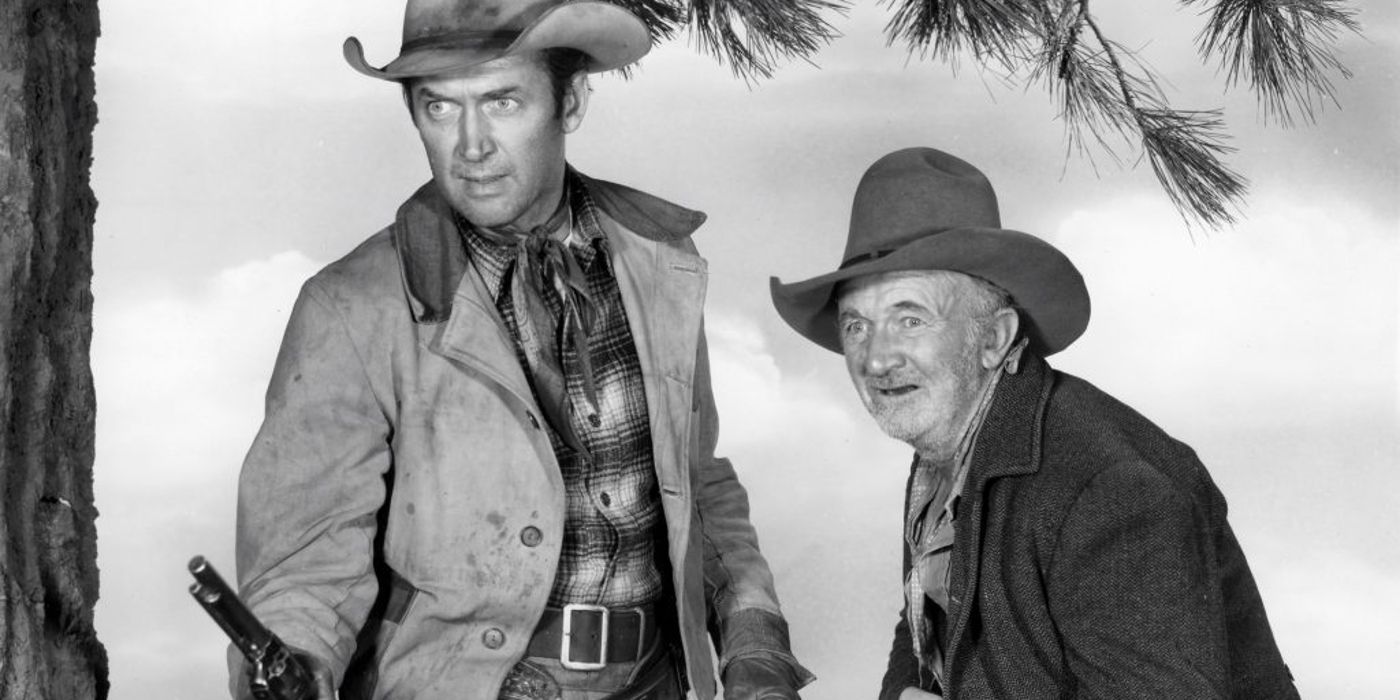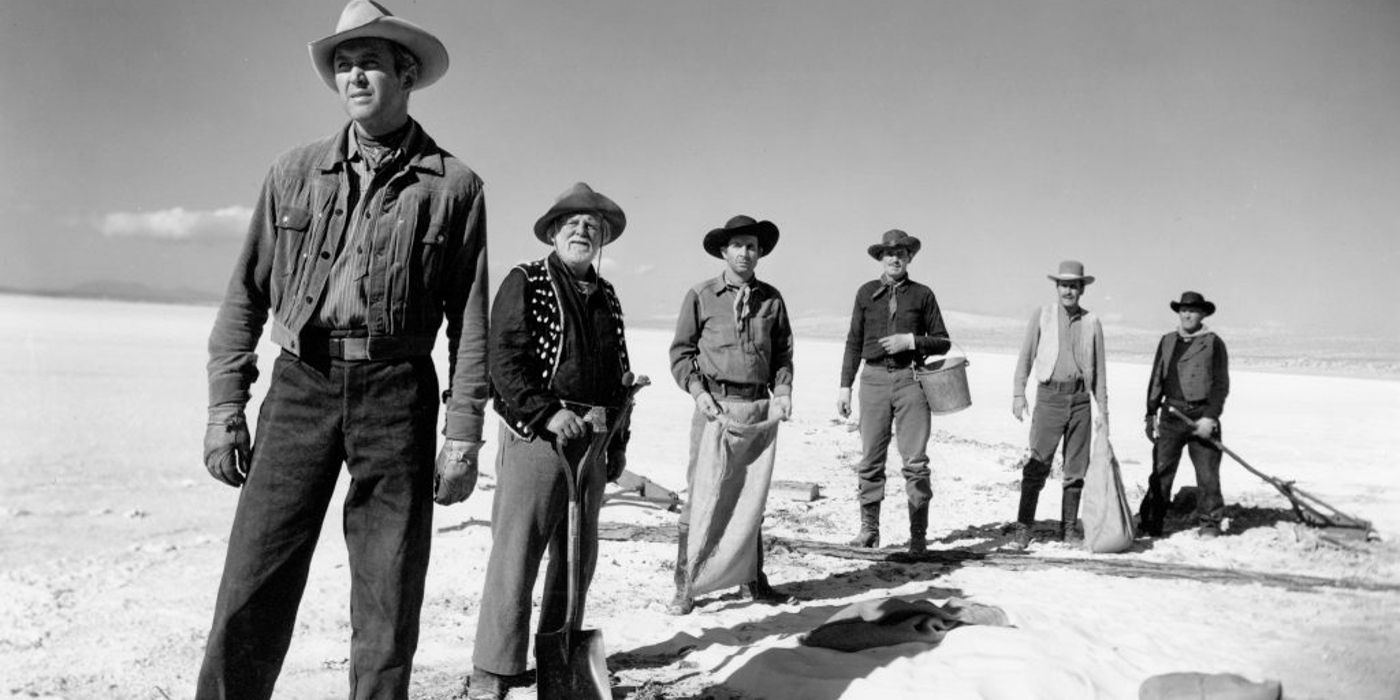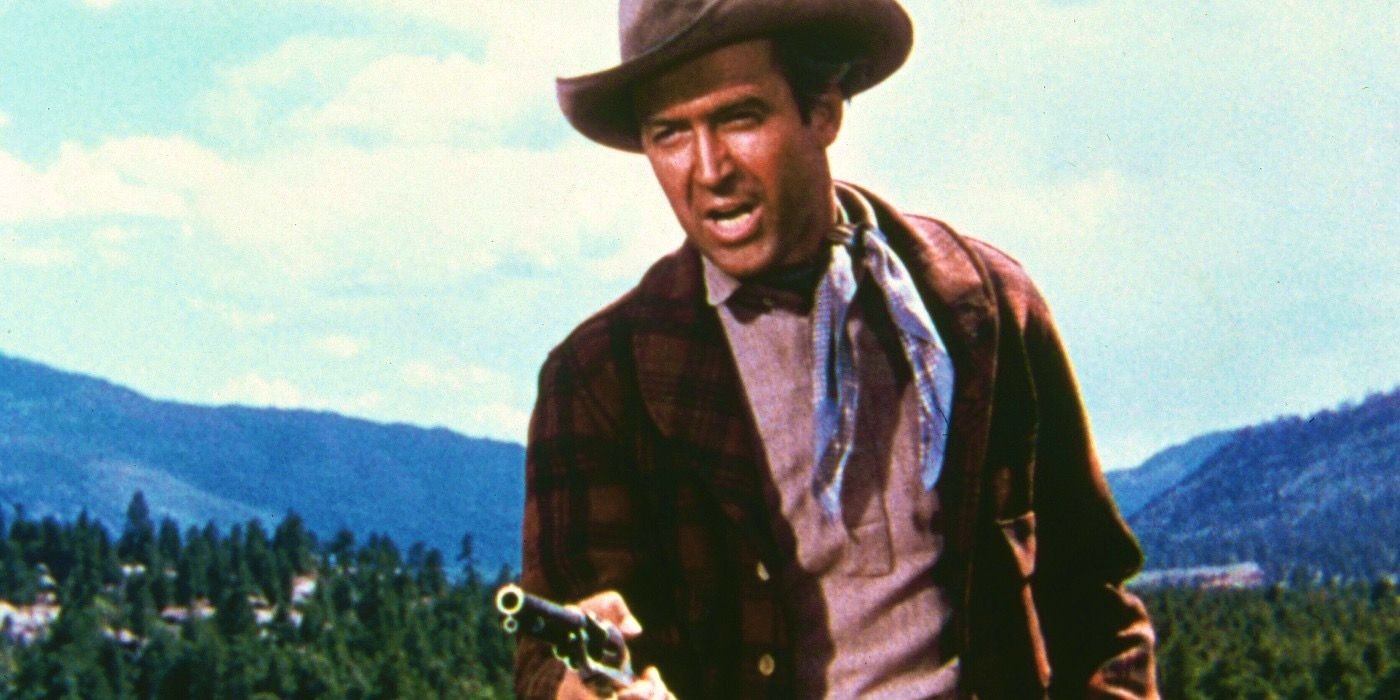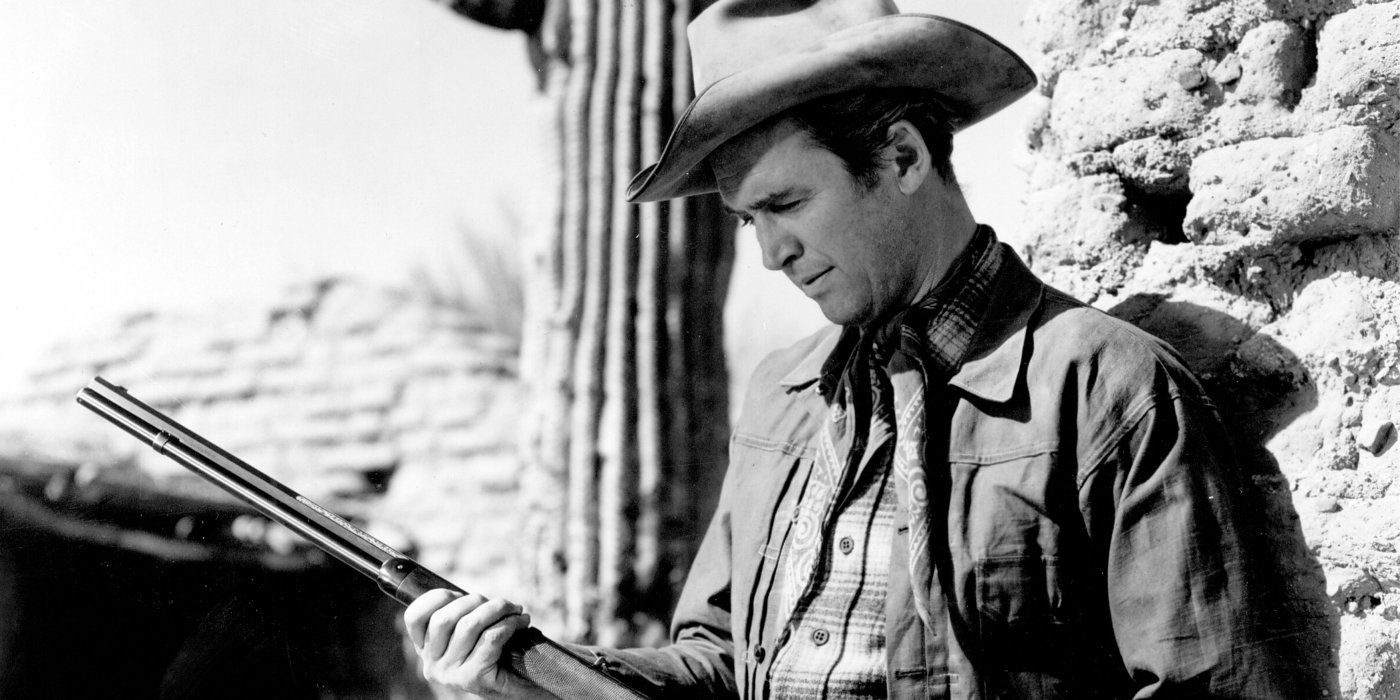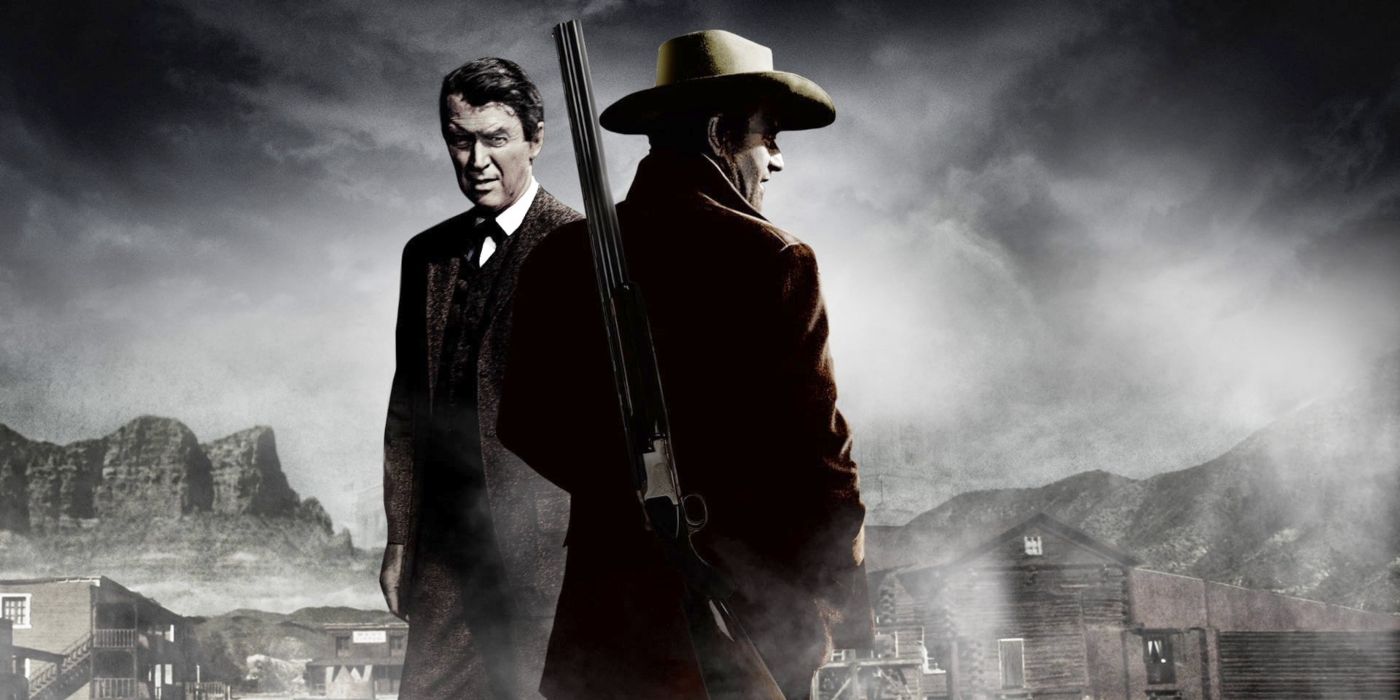Summary
- Jimmy Stewart's career in Westerns showcased his versatility as an actor, portraying both stoic pacifists and smoldering lawmen.
- His military service in WWII influenced the dark and complex roles he took on in Western films, bringing depth and thoughtfulness to the genre.
- Stewart's performances in Westerns like "Destry Rides Again" and "The Man Who Shot Liberty Valance" solidified his status as a Western legend, with his charm and range making him a standout among his contemporaries.
While he's known for dramas like It's A Wonderful Life and Mr. Smith Goes to Washington, James "Jimmy" Stewart built quite a career in Westerns playing righteous heroes and complicated antagonists in the American West. With his gentle drawl and everyman reliability, Jimmy Stewart could embody stoic pacifists as easily as he could smoldering lawmen and protective homesteaders. In 1939, the same year he was nominated for an Academy Award for Best Actor for Mr. Smith Goes to Washington, he proved he was a great actor who was surprisingly good in Westerns by starring in Destry Rides Again and cementing his status as a Western legend.
Amidst screwball comedies like The Shop Around The Corner or romcoms like The Philadelphia Story, Stewart always came back to Westerns. After he enlisted in WWII as a second lieutenant in the Air Corps (eventually becoming a major and later a brigadier general after being awarded the Distinguished Flying Cross), he didn't make any new films until 1947, and the roles he took when he returned reflected the dark side of humanity he saw during his service. America's favorite son imbued complexity and thoughtfulness into the Western archetype that distinguished him from contemporaries like John Wayne or Clint Eastwood.
10 Destry Rides Again
Stewart's first Western shows how natural he was in the part of the lawman who didn't need to be flashy with his six-shooter to get things done. As the sophomoric son of a famous lawman, his Tom Destry doesn't feel the need to carry a gun, and while the townsfolk mock him for it, he doesn't draw until he absolutely has to, making the inevitable gunfight at the end of Destry Rides Again all the more exciting. In this film, Stewart's charm and warmth are undeniable, particularly as he woos Marlene Dietrich's saloon femme fatale, and he makes an undeniable screen presence.
9 Broken Arrow
Highlighting the conflict between white settlers and the Apaches, Broken Arrow follows Stewart's Tom Jeffords, an Indian agent who befriends the legendary Apache leader Cochise (Jeff Chandler). A fictionalized retelling of interactions between historical figures, this marked one of the first movies made after WWII that portrayed Native Americans in a sympathetic light. Considering Stewart's military record as well as compassionate bearing, he's just the sort of emissary of goodwill needed to make the story convincing.
8 Shenandoah
Because audiences can so readily see the anguish of the internal conflict written all over his expressive face, Stewart is never better than when he's caught between compromising his integrity to do what's right, as he is in Shenandoah. He plays a Virginia farmer during the Civil War who, while neither supporting the North nor the South, decides to willingly go into the killing fields when his son is taken prisoner. His neutrality is tested with each new obstacle that exposes Stewart's range and depth as an actor in a somewhat by-the-book Western.
7 Bend Of The River
In Bend of the River, Stewart plays a Civil War veteran looking to put the ruthless things he did in the name of conflict behind him by guiding a wagon train to Oregon. Murderous prospectors, gamblers, and tempestuous teamsters are added to food shortages and hostile territory, forcing him to rely on his old training to surmount the odds. Stewart gives his tortured guerrilla raider empathy and sentimentality in a constantly violent world and emanates authenticity as only someone who has been close to death (and taken its finality to heart) can.
6 How The West Was Won
How the West Was Won is a big, glittery, sprawling Western epic that is as visually impressive as it is full of Hollywood stars. It follows Stewart's Linus Rawlings, a mountain man with a large family, from his fur trapping days and the Civil War to the concluding confrontation between his son, played by the ingratiating George Peppard and reliable Western black hat Eli Wallach. Stewart applies his usual breezy stalwartness to the role of a trapper patriarch in this multi-generational exploration of just one family's legacy in the American West.
5 The Far Country
Jeff Webster (Jimmy Stewart) and Ben Tatum (Walter Brennan) are just two cowboys trying to help a wagon train during the peak of the Yukon Gold Rush, but a nefarious lawman (John McIntire) dogs their every step. Gannon catches up to them at various intervals and unleashes self-righteous fury whether they're trying to work a herd or their gold claim, and after losing his partner, Webster has to stand up to the "Judge" and his tyranny. The steadily rising tension as Webster finds himself increasingly backed into a corner makes The Far Country a nail biter and one of Stewart's best performances as a gritty anti-hero.
4 The Man From Laramie
Westerns can often have a mythic quality with their larger-than-life characters embodying the pathos of the human condition, and that's what's occurring in The Man From Laramie, released soon after The Far Country. Jimmy Stewart plays Will Lockhart, an Army officer tasked with finding the man indirectly responsible for the death of his kid brother by providing the local Native American tribes with repeating rifles. The film takes on the heights of a Shakespearean melodrama when Lockhart makes an enemy of the local land baron and his sociopathic son, and while wounded, must find a way to stop the gunrunning operation.
3 The Naked Spur
Stewart runs on a short fuse in The Naked Spur as he maniacally pursues wanted outlaw Ben Vandergroat to the point of obsessive desperation. All of Stewart's stalwart affability is replaced by a nuanced performance that has layers of weakness and fallibility, making it his least heroic role but one of his best performances. In fact, his prey (played by Robert Ryan) comes across as the more likable character and is the rare example of a Western where the villain steals the show by pointing out that the bounty on his head, rather than moralism, is the true north star for Stewart's complicated Howard Kemp.
2 Winchester '73
Winchester '73 is the first of five collaborations with director Anthony Mann, considered one of the best Western directors of all time, who used Stewart's methodical intensity as a man in desperate pursuit of his brother for murdering their father and fleeing justice. This Western was released after Stewart's WWII period and highlights his deeper understanding of moral conflict as he's recently driven to pursue his quarry. The titular rifle that he uses throughout the film not only binds together its many vignettes but also reflects Stewart's military experience, which made him a Western hero who looked very much at home in the lawless terrain of the Wild West.
1 The Man Who Shot Liberty Valance
Uniting The Duke with Stewart for the first time, The Man Who Shot Liberty Valance has a moody film-noir feel that is atypical for a Western involving John Wayne in a John Ford movie. One of Ford's best Westerns is told in flashback, as Stewart's senator exaggerates his participation in the death of outlaw Liberty Valance (played by a nasty Lee Marvin) when he was a newly graduated law student, using it to buoy his political career. Wayne plays the gunman who more than likely did the dirty work but doesn't take credit, and the characters' shifting allegiances around the truth showcase some of the finest acting in Westerns.


